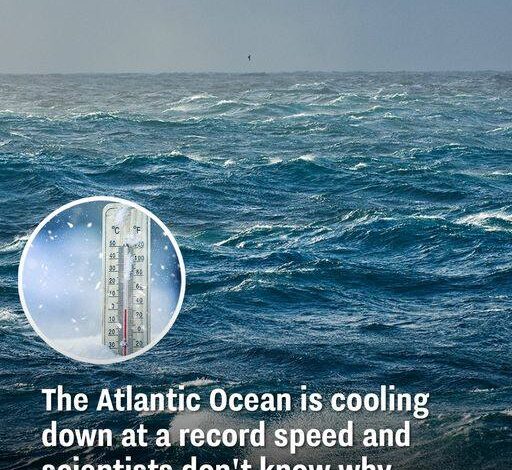The recent rapid cooling of the Atlantic Ocean has puzzled scientists

The recent rapid cooling of the Atlantic Ocean has puzzled scientists
, as it marks a stark reversal from over a year of record-high ocean temperatures. This phenomenon is particularly surprising because it contradicts the expected seasonal warming of the Atlantic due to climate change and the typical patterns associated with El Niño.
The cooling began around May 2024, with temperatures dropping by one to two degrees Fahrenheit. This shift appears to be linked to the potential transition from El Niño to La Niña, a pattern where ocean temperatures drop below average. However, what has scientists most concerned is the unusual speed of this transition, which is happening faster than anticipated.
Experts have speculated that this cooling, sometimes referred to as “Atlantic Niña,” could lead to unpredictable weather patterns globally. For instance, stronger winds from the equator may push cooler waters further, potentially influencing rainfall patterns and increasing the likelihood of hurricanes in regions like the Cape Verde islands.
Despite extensive studies, the exact cause of this rapid cooling remains unclear. Scientists continue to investigate whether this is a temporary anomaly or a sign of longer-term changes in the Atlantic’s climate dynamics.
This situation is being closely monitored, as the interplay between the Atlantic and Pacific Oceans—both potentially entering La Niña phases—could have significant impacts on global climate patterns in the coming months.
For more detailed information, you can refer to sources such as [UNILAD](https://www.unilad.com), [Outlook India](https://www.outlookindia.com), and [The New York Sun](https://www.nysun.com).



